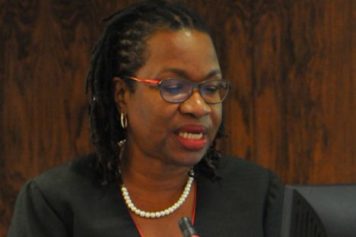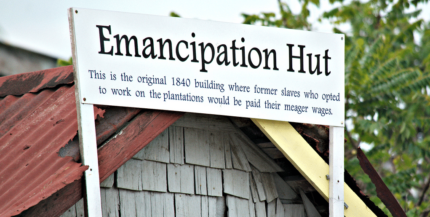Interim executive director of the Caribbean Community (Caricom) Implementation Agency for Crime and Security (IMPACS) Francis Forbes described the illicit trafficking of small arms and the growth of gangs in the region as “disturbing.”
“Our borders are targets for drug traffickers, people trafficking and, most disturbing, illicit trafficking in small arms and ammunition,” he was quoted as saying in Stabroek News. “Our homicide rates are notorious and often defy logic except when placed alongside the high number of illegal guns present in member states.”
Forbes was hardly alone with his concerns as the day marked the launch of the U.S. Assistance to Combat Arms Trafficking in the Caribbean, held at IMPACS headquarters in Port of Spain.
The U.S. will be providing $3.43 million for a program to combat illicit trafficking in firearms in the Caribbean, which will include forensic training and officer exchange programs. The program, part of the Caribbean Basin Security Initiative, was launched yesterday and is being spearheaded by the U.S. Department of State and the Department of Justice’s Bureau of Alcohol, Tobacco, Firearms and Explosives (ATF).
ATF deputy assistant director John Torres said his bureau “will bring our expertise and assist those in this country and in the area to maintain citizen safety throughout this initiative.”
Forbes said it was “disappointing” that the region continued to be among the top three globally for high incidence of homicides.
“Even more disturbing, however, are recent trends indicating significant growth in gang formation,” he added.
He noted that illicit trafficking remained a threat to the region and regional border security was a “much sought after but very elusive target”.
He pointed out that the issue must be approached collectively to achieve the desired result.
Forbes reported that recently “unusual high caliber weapons” had been turning up in Guyana, believed to have originated in Venezuela.
He noted that regional investment in IMPACS had been paying “great dividends” and a regional crime strategy had been developed for the first time.
Torres explained the exchange part of the program will permit law enforcement officials to work for short intervals in the U.S.
“I’ve been doing this for 28 years now and I think one of the most important things in partnerships…is that we can share what we’ve learned with our law enforcement partners,” he said. “I think that is one of the most important things we can bring to the table.”
Deputy Commissioner of Police Mervyn Richardson, who was in attendance at the ceremony, said the initiatives were welcome and the Police Service “will make maximum use” of them.
“It’s a win-win situation,” he said. “We will stop the guns from coming in and it will lessen our homicide rate.”
Deputy Assistant Secretary of State for Western Hemisphere Affairs in the U.S. Department of State, Liliana Ayalde, noted the Association of Caribbean Police Chiefs last year estimated that there were 1.6 million illegal guns circulating in the region. She explained the initiative was to “increase the capabilities of the Caribbean law enforcement and prevention institution throughout the Caribbean to fight gun trafficking.”
“We must all work energetically to curb the illicit trade in firearms and collectively redouble our commitment to this important task,” she said.
Wednesday marked the second and final day of the Third Caribbean-United States Security Cooperation Dialogue in Port of Spain.


